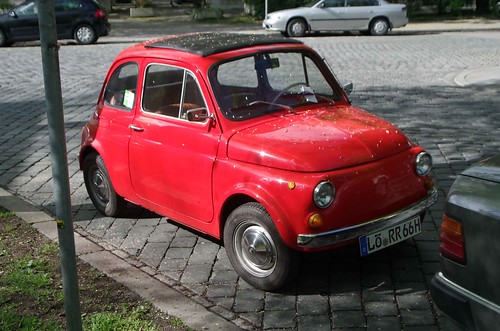While building RPGpad we do a lot of data modelling — which is the art of finding the right way to systematically describe the organization and details of things like rules systems and character sheets.
One of the funny things of data modelling is that as you get more experience with it, you start to notice all kinds of cross-cutting categories and patterns in how information is represented. You’ll also get the dubious superpower of noticing exceptions to those patterns everywhere, which is a bit like learning about bad kerning.
Because we work with game system rules a lot, we have noticed an interesting pattern that a lot of game systems seem to ignore to some extent: the difference between ‘things you have’ and ‘things you are’.

To clarify what we mean by that, let’s think of a little red car. Chances are you are thinking of a car that is red, not very big, and that it has wheels and an engine as most cars do. Without thinking about it, we almost immediately make a distinction between two types of things we can say about the car:
- The car is red, it is little.
- The car has wheels, and it has and engine.
See how easily those things classify neatly into the two distinct categories of the car being and the car having something? The same goes for character statistics in roleplay games.
Note that we are not talking about characters but about their statistics. If we were to purely look at the character itself, the distinction is very clear: “they are an elf, they have a pair of legs.” Nor are we looking at whether or not the character statistics themselves talk something, which we will talk about as “The character has a Strength score.”
Because this gets confusing fast, with all the different things we can talk about (the character itself, the way the character statistics are described, and the character statistics themselves) we will from now on only talk about the way the character data is modelled in the game system, and how this says things about the abilities and qualities of the character.
Many game systems draw a fuzzy line between the two categories of being and having — or at least have a lot of overlap in the way they model character statistics. This is somewhat strange, because things your character is are often an innate quality of that character, whereas things the character has are things that they can often acquire later on.
For example, in Pathfinder feats model a lot of things about your character. For those more at home in other game systems, feats in Pathfinder represent things about the character that are not directly tied to some other statistic such as a character’s race, class, or skill ranks.
There are feats that describe the character being something:
- being very nimble via the Acrobatic feat,
- being tough to knock out via the Toughness feat.
And there are feats describing the character having something:
- having followers via the Leadership feat,
- having extensive training with dual-wielding via the aptly named Two-weapong Fighting feat.
Of course, if you want to play the word-game, there is an argument to be made for stating “My character is talented in Two-Weapon Fighting” or “My character has a lot of combat training.”, but more often than not, the first thing that will come to mind for Two-Weapon Fighting is that it comes about via training, and that it is talent or natural ability that brings about Toughness.
Categorizations like this is never iron-clad, but by trying to define them down into their essence, we can discover interesting things about systems, and how you could build them up differently. By studying several different rules systems, combined with a lot of time spent on modelling their data in RPGpad we started to observe this pattern in all game systems.
After several discussions, Mercury and me boiled down what we observed into a single divison of things that can be said about characters: the distinction we are really seeing here is one between trained and malleable abilities, and unremovable things that character “is” instead of “has”.
For example, a character’s Strength, skill in the usage of Fire Arms, or Occult Knowledge is something that can be trained, and is often malleable to a great extent. On the other hand we have things such as being the Descendant of The Emperor, or being Talented in Juggling, which are unremovable (and nearly always immutable) qualities of the character.
We wonder what a game system would look like that takes into account this distinction more clearly. We imagine it would be a great system for writing up characters with different backgrounds and traits, while at the same time being more limited as to what kinds of character progression are available.
What do you think?
If you have any thoughts on how such a distinction would impact a game system, let us know! Open a thread on the community forums, or drop us a line via PM.
And as always, we have this week’s changelog ready for you, though since we are still working on our respective projects, it is sadly empty.